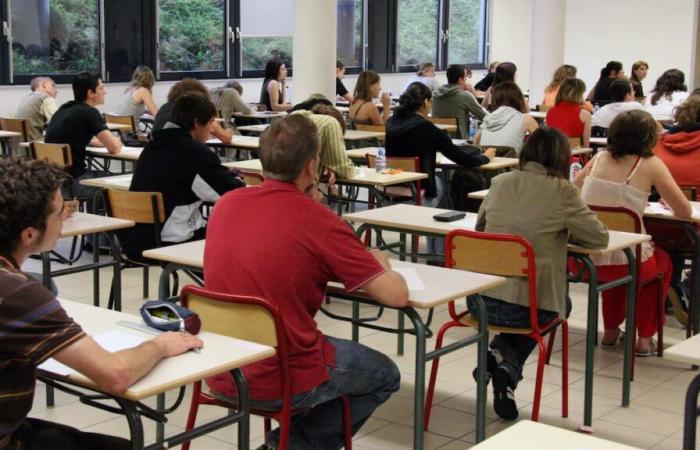While absenteeism is on the rise in CEGEP, students are demanding the abandonment of all sanctions linked to lateness and absences in the college network.
For their part, teachers fear abuse since Quebec asked to no longer require a medical note for an absence of less than five days.
More and more CEGEP students are absent from their classes, admits Antoine Dervieux, president of the Quebec College Student Federation (FECQ).
“Yes, it’s a situation that is on the rise, but there are several factors that are not taken into account in the situation,” he says, such as mental health issues or family-work balance. studies, in a context of financial insecurity.
“Students need to work a lot more, which means they have less time to go to their classes,” adds Mr. Dervieux.
End of the punitive approach demanded
The student federation has just adopted a memorandum, in which it calls for the abandonment of the “punitive approach” to put in place “support” measures to counter absenteeism, he explains.
“Restrictive absenteeism policies, which use sticks rather than carrots, have an impact on the intrinsic motivation of the student population. It’s discouraging, it has direct impacts on anxiety, anguish and distress, it’s a vicious circle that can lead to dropping out of school,” says the president of the FECQ.
Absenteeism policies vary from one CEGEP to another. At the CEGEP of Saint-Hyacinthe, a student can be absent up to 20% of the hours devoted to a course, while this proportion is 10% at the CEGEP of Chicoutimi, we can read in the brief. Sanctions include exclusion from the course or the inability to take an exam.
Class attendance has an impact on academic performance, as research has shown, but this link is less significant for stronger or weaker students, the federation argues.
Presence in class is not necessarily linked to mastery of learning, adds Antoine Dervieux, since a student physically present in a lesson could be mentally absent, if he spends all his time on his cell phone for example.
Teachers fear abuse
For its part, the National Federation of Teachers of Quebec (FNEEQ-CSN) has not taken a formal position regarding punitive measures related to absenteeism, but reiterates that a student’s place is in class. “It’s part of a student’s job to be present in their classes,” says its vice-president, Yves de Repentigny.
Managing lateness and absences also adds a layer on teachers’ shoulders, especially since medical notes are no longer required to justify an absence from an exam.
The Legault government’s directive issued this spring could open the door to abuse, fears the FNEEQ-CSN.
A student who has performance anxiety can now call in sick during an exam and demand a retake a few days later, illustrates Mr. de Repentigny, which poses “equity issues”.
For its part, the Fédération des cégeps indicates that absences are “generally not penalized” in the college network.
Its president and CEO, Marie Montpetit, says she is “open to collaborating” on this issue, keen to “preserve an essential balance between academic rigor, the well-being of students and their educational success,” indicates- her in a written statement.
Do you have any information to share with us about this story?
Write to us at or call us directly at 1 800-63SCOOP.






